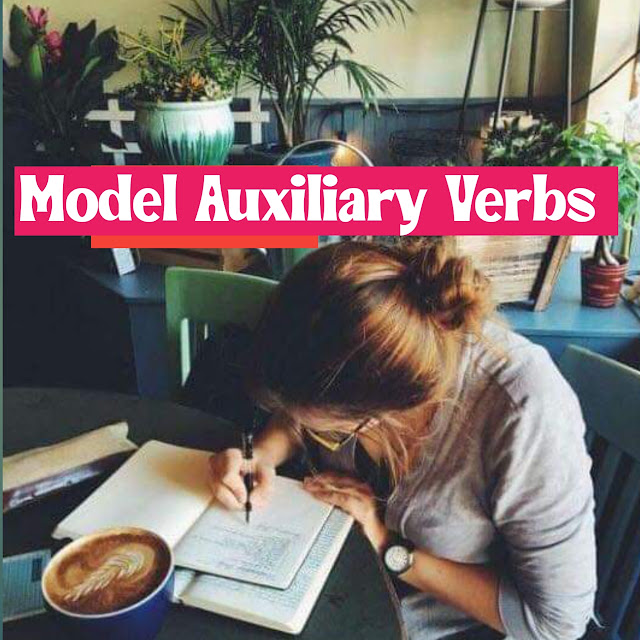Introduction to Modal Auxiliary Verbs:
Modal auxiliary verbs, also known as modal verbs or simply modals, are a unique category of verbs in English grammar. They play a crucial role in expressing various meanings and attitudes, such as ability, possibility, permission, obligation, necessity, and more. Modal verbs provide important nuances to the main verb in a sentence, indicating the speaker's stance, intention, or viewpoint. Understanding modal auxiliary verbs is essential for mastering English grammar and effectively communicating ideas.
Uses of Modal Auxiliary Verbs:
1. Expressing Ability:
Modal verbs like "can" and "could" are used to indicate the ability or capability to perform an action. For example, "She can play the piano beautifully" suggests that she has the skill to play the piano.
2. Expressing Possibility:
Modal verbs like "may," "might," and "could" are employed to express possibility or uncertainty. For instance, "It may rain tomorrow" suggests that there is a possibility of rain occurring.
3. Expressing Permission:
Modal verbs like "may," "can," and "could" are used to seek or grant permission. For example, "Can I borrow your pen?" seeks permission to borrow the pen.
4. Expressing Obligation:
Modal verbs like "must," "have to," and "should" indicate obligations or duties. For instance, "You must complete your homework" suggests that it is necessary to complete the homework.
5. Expressing Necessity:
Modal verbs like "must" and "have to" are used to express necessity. For example, "I have to study for the exam" indicates that studying is necessary to prepare for the exam.
6. Expressing Advice or Recommendation:
Modal verbs like "should" and "ought to" are employed to give advice or make recommendations. For instance, "You should visit the museum. It's fascinating."
7. Expressing Prohibition:
Modal verbs like "must not" and "should not" are used to indicate prohibition or strong advice against doing something. For example, "You must not smoke in this area" prohibits smoking in that specific area.
Some examples of model helping verbs Uses:
1. Should:
- You should apologize for your mistake.
- We should arrive at the airport early to avoid any delays.
- He should take his medication regularly for better health.
- They should study harder to improve their grades.
- It should stop raining soon.
2. Could:
- Could you please pass me the salt?
- We could go to the beach if the weather is nice.
- She could play the piano when she was younger.
- They could have won the game if they had scored the last goal.
- It could be a good opportunity for you to learn a new skill.
3. Would:
- Would you like some coffee?
- We would love to join you for dinner.
- He would always help his neighbors whenever they needed assistance.
- They would often go hiking in the mountains during the summer.
- It would be great if we could meet up next week.
4. May:
- May I ask you a question?
- We may go to the movies tonight if we finish our work on time.
- She may have already left for the meeting.
- They may not be able to attend the party due to prior commitments.
- It may rain tomorrow, so don't forget your umbrella.
5. Might:
- I might go shopping later if I have enough time.
- We might consider your proposal and get back to you.
- She might have forgotten her keys at home.
- They might join us for dinner if they finish their work early.
- It might be a good idea to double-check the details before submitting the report.
6. Ought to:
- You ought to apologize for your rude behavior.
- We ought to start saving money for our future.
- He ought to call his parents more often.
- They ought to take better care of their health.
- It ought to be a priority to address climate change.
7. Need to:
- You need to finish your assignment before the deadline.
- We need to buy groceries on our way back home.
- He needs to improve his communication skills for his job.
- They need to study for their upcoming exams.
- It needs to be repaired as it is not functioning properly.
8. Used to:
- I used to play the guitar when I was younger.
- We used to live in the countryside before moving to the city.
- She used to visit her grandparents every summer.
- They used to go for a walk in the park every evening.
- It used to be a popular restaurant, but it has closed down now.
9. Must:
- You must submit your application before the deadline.
- We must follow the rules and regulations of the organization.
- He must attend the meeting tomorrow.
- They must complete the project by the end of the week.
- It must be a mistake because I didn't order this item.
10. Dare to:
- Do you dare to try the spicy chili sauce?
- We dared to explore the abandoned house.
- She dared to speak up against injustice.
- They dared to jump off the cliff into the deep water.
- It dares to challenge the traditional norms of society.
Conclusion:
Modal auxiliary verbs are indispensable elements of English grammar, providing additional meaning and nuances to sentences. By understanding and correctly using modal verbs, one can effectively convey abilities, possibilities, permissions, obligations, and more. Mastering the usage of modal auxiliary verbs enables individuals to express their intentions, attitudes, and viewpoints with precision and clarity. So, whether you're expressing abilities, seeking permissions, or giving advice, incorporating modal auxiliary verbs into your language skills is key to becoming a proficient English speaker and writer.







No comments:
Post a Comment